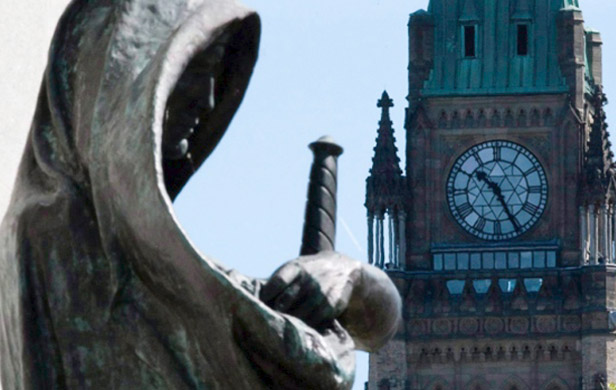
The BC Liberal Government just couldn’t leave well enough alone. In choosing to appeal the Tsilhqot’in First Nation’s BC Supreme Court victory over land title and rights, the government set in motion a chain of events that could have profound consequences for its future resource development plans.
The Tsilhqot’in won a landmark legal victory affirming title and rights over 200,000 hectares of their traditional territory, west of Williams Lake, at the BC Supreme Court in 2007 (with limited rights to an even larger area). The 17-year case was the longest and arguably most important in the provincial court’s history. But at the lowest level of the courts, its ramifications remained unclear – especially as they applied to other territories.
Then, the BC government decided to challenge the ruling – initially winning a small victory in 2012 at the Court of Appeal, which undermined key aspects of the lower court’s decision. But the move would ultimately backfire.
BC government its own worst enemy
Like other seminal aboriginal rights cases such as Haida and Delgamuukw before it, in choosing to appeal the Tsilhqot’in case, the province ultimately made matters much worse for itself by entrenching the substance of the lower-court decision in the highest judicial precedent of the land, when the Supreme Court of Canada handed down its verdict this week. The SCC’s decision maintained the nation’s title and rights to 170,000 square hectares – essentially affirming the BC Supreme Court’s original ruling.
The choice of the Liberal government to roll the dice with the higher courts was likely motivated by two factors: 1) Its fixation on the proposed Prosperity Mine at Fish Lake, in Tsilhqot’in territory; and 2) Concerns over the broader implications for its resource development program throughout province if the BC court decision stood.
By proceeding with the challenge, the government failed spectacularly on both accounts.
The Fish Lake that got away
The province’s unrelenting support for Taseko Mines’ Prosperity project saw it clash with the Harper Government on several occasions. It rubber stamped the mine’s first iteration, only to watch federal Environment Minister Jim Prentice shoot it down after the panel reviewing it identified serious environmental and First Nations issues.
Then, the Liberal government stirred up a hornet’s nest when it issued exploratory permits to the company. The First Nation balked, evicting contractors from the territory. After Taseko obtained an injunction against the nation, the Tsilhqot’in got it overturned.
[signoff3]
While all this legal wrangling over the mine was going on, the province was appealing the separate-but-related BC Supreme Court decision on the nation’s title and rights.
When the company submitted a new proposal for the mine in 2013, it too was rejected in February of this year. The company, still unwilling to take “no” for an answer, is now seeking a judicial review of the second rejection – but this week’s SCC decision surely must represent the final, final nail in the coffin for Taseko’s ill-fated mine.
What does ruling mean for Enbridge, other projects?
The SCC ruling’s impact on other contentious resource projects, like the proposed Enbridge and Kinder Morgan pipelines, remains to be seen. “Just because the Supreme Court of Canada has issued this claim doesn’t mean that the government is going to start giving all the land back to the aboriginal people,” says Garth Walbridge, a Métis lawyer.
[quote]But it could have a serious economic impact. The size of the boulder that Enbridge is rolling up the hill to get their pipeline built just got much bigger today, because the First Nations in that part of the country now have much much bigger say in whether or not Enbridge can go ahead.[/quote]
In pushing the case to the Supreme Court of Canada – and losing, big time – the BC Liberal government has ensured that these questions will be central to all resource development in the province going forward.
November 2011 injunction case over Prosperity Mine


I’m doing my happy dance! Yayyyy
Well, What a good decision for the nation and the courts, are only
going to further lesson on how much we need this country in tac,
with or with out the governements say and for future generrations,
and god bless the courts in this decision.
Lame analysis. Going forward, this decision will allow generations of Tsilhqot’in children some legal protection over their rightful title without foreign government infringement, which is a good thing. It seems like you are implying that having to finally pay to park your boat, so to speak, is a going to be a bad thing?
Who’s implying that, Stan? Certainly not this author.
I know a lot of non-Native people very happy to have First Nations’ constitutional rights being laid as the foundation of more environmentally-wise policy for BC and Canada.
Will Natives always be on “our side” — always against development projects that Harper and C. Clark and their ilk want to promote? Will Native leaders always choose preservation of the land and waters over “material prosperity” for their people? Prosperity we white folk have been enjoying, at the cost of environment degradation, for a century and more?
Govt will latch onto “public good” arguments to push developments.